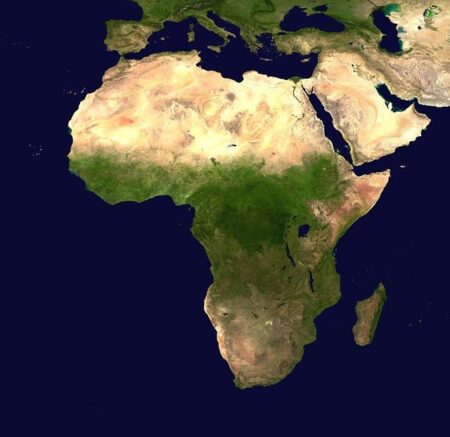Burundi’s Rare Earth Reserves and the Shifting Landscape of Global Strategic Supply Chains
In today’s world, where technological advancement and geopolitical competition are intensifying, rare earth elements (REEs) have become indispensable commodities that influence global power structures. Often overlooked in resource discussions, Burundi—a modest East African nation—is gaining prominence due to its significant yet largely unexplored deposits of these critical minerals. As countries worldwide race to secure reliable sources of rare earths—essential components in devices ranging from electric vehicles to advanced electronics—Burundi’s mineral wealth is attracting unprecedented international interest. This article explores how foreign investments and geopolitical rivalries are converging around Burundi’s rare earth sector, highlighting the complex interplay between local governance and global ambitions that could transform supply chains on a worldwide scale. Amid rising tensions among major powers seeking to reduce dependence on established suppliers, Burundi emerges as a strategic fulcrum balancing economic prospects with international maneuvering.
Burundi’s Emerging Influence in the Global Rare Earth Market: Geopolitical Ramifications
With its vast untapped reserves of rare earth minerals, Burundi is positioning itself as an increasingly important contributor to the global supply chain for these vital resources. The country’s potential has caught the eye of investors and governments aiming to diversify their access beyond traditional dominant producers like China. Given that REEs underpin cutting-edge technologies—from renewable energy systems to telecommunications—the strategic value of Burundi’s deposits cannot be overstated.
The implications extend well beyond economics into the realm of geopolitics. In light of escalating rivalry between superpowers such as the United States and China over control of critical materials, securing alternative sources like those found in Burundi becomes a matter of national security for many countries. Key considerations shaping this dynamic include:
- Foreign Investment Dynamics: While inflows can stimulate local economies through job creation and infrastructure development, they may also spark diplomatic friction or exacerbate regional tensions.
- Sustainability Challenges: Extracting REEs often involves environmentally sensitive processes; thus, balancing economic growth with ecological preservation will be crucial for policymakers.
- Regional Security Impacts: How Burundi manages its newfound role could either foster stability by promoting cooperation or trigger instability if external pressures undermine governance.
Strengthening Global Supply Chains Through Burundi’s Rare Earth Resources
Barely recognized until recently on the international stage for its mineral wealth, Burundi now stands at a crossroads due to its rich deposits essential for high-tech manufacturing sectors including electronics assembly, green energy solutions like wind turbines and solar panels, as well as advanced communication devices. The COVID-19 pandemic exposed vulnerabilities within existing supply networks—highlighting how disruptions can ripple across industries reliant on steady access to REEs.
This evolving context presents opportunities for new alliances centered around Burundian mining ventures that could recalibrate power balances among resource-dependent nations globally. For instance:
- Infrastructure Development: Building efficient extraction facilities alongside transport links such as railways or ports will be vital for integrating Burundian minerals into global markets effectively.
- Regulatory Clarity: Transparent legal frameworks encouraging responsible mining practices while safeguarding investor interests will attract sustained foreign capital inflows.
- Diplomatic Engagements: Forming partnerships with key consumers like Japan or South Korea can solidify long-term demand agreements benefiting all parties involved.
The table below outlines some prominent rare earth elements identified within Burundian reserves along with their primary industrial applications:
| Rare Earth Element | Main Industrial Uses |
|---|---|
| Neodymium | Critical component in powerful magnets used by electric vehicle motors & wind turbine generators |
| Dysprosium | Additive enhancing magnet performance under high temperatures; utilized in nuclear technology too |
| Lanthanaum (Lanthanum) | Makes camera lenses sharper; integral part in battery electrodes especially nickel-metal hydride types  |
Strategic Pathways for Maximizing Burundi’s Rare Earth Potential: Economic Growth & Regional Stability
A comprehensive approach is essential if Burundi aims not only to capitalize economically but also strengthen its geopolitical standing through responsible management of rare earth assets. Priorities should include:
- Spearheading Infrastructure Projects: Upgrading transportation corridors—including roads connecting mines with export hubs—and investing in processing plants capable of refining raw ores domestically rather than exporting unprocessed materials alone;
- Create Attractive Investment Environments: Offering tax incentives or streamlined licensing procedures tailored toward experienced mining firms specializing in sustainable extraction techniques;
- Nurturing Local Expertise & Workforce Development: Implement vocational training programs focused on mining technology skills ensuring community participation benefits;
- Pursuing Regional Cooperation Frameworks: Cultivating alliances within East Africa aimed at harmonizing regulations governing cross-border mineral trade while sharing best environmental practices;
- Cultivating International Partnerships: Liaising closely with technologically advanced nations committed both financially and technically toward sustainable resource exploitation enhances credibility abroad while mitigating risks associated with overdependence on any single partner nation.
Â
Â
Â
Â
 Â
 Â  Â
  Â
  Â
  Â
   Â
   Â
   Â
   Â
   Â
                                                  Â
 Â
 Â
Conclusion: Burundi at the Heart of a New Era in Critical Minerals Geopolitics
The growing significance attributed to rare earth elements amid shifting geopolitical landscapes places countries like Burundi under an intense spotlight previously unseen given their size or economic profile alone. As global powers reassess dependencies triggered by scarcity concerns combined with political frictions surrounding traditional suppliers—primarily China—the emergence of alternative sources such as those found within East Africa signals transformative potential not just economically but diplomatically too.
Navigating this complex environment requires astute policymaking balancing domestic development goals against external pressures from competing interests eager both to invest strategically yet assert influence regionally.
Ultimately, Burdini’s trajectory embodies broader themes shaping twenty-first-century resource politics: diversification efforts reshaping alliances coupled with heightened awareness about sustainability challenges inherent within extractive industries. The coming years will reveal whether this small nation can leverage its geological fortune into lasting prosperity while contributing meaningfully towards stabilizing regional dynamics amidst intensifying great-power competition over critical minerals supply chains worldwide.







